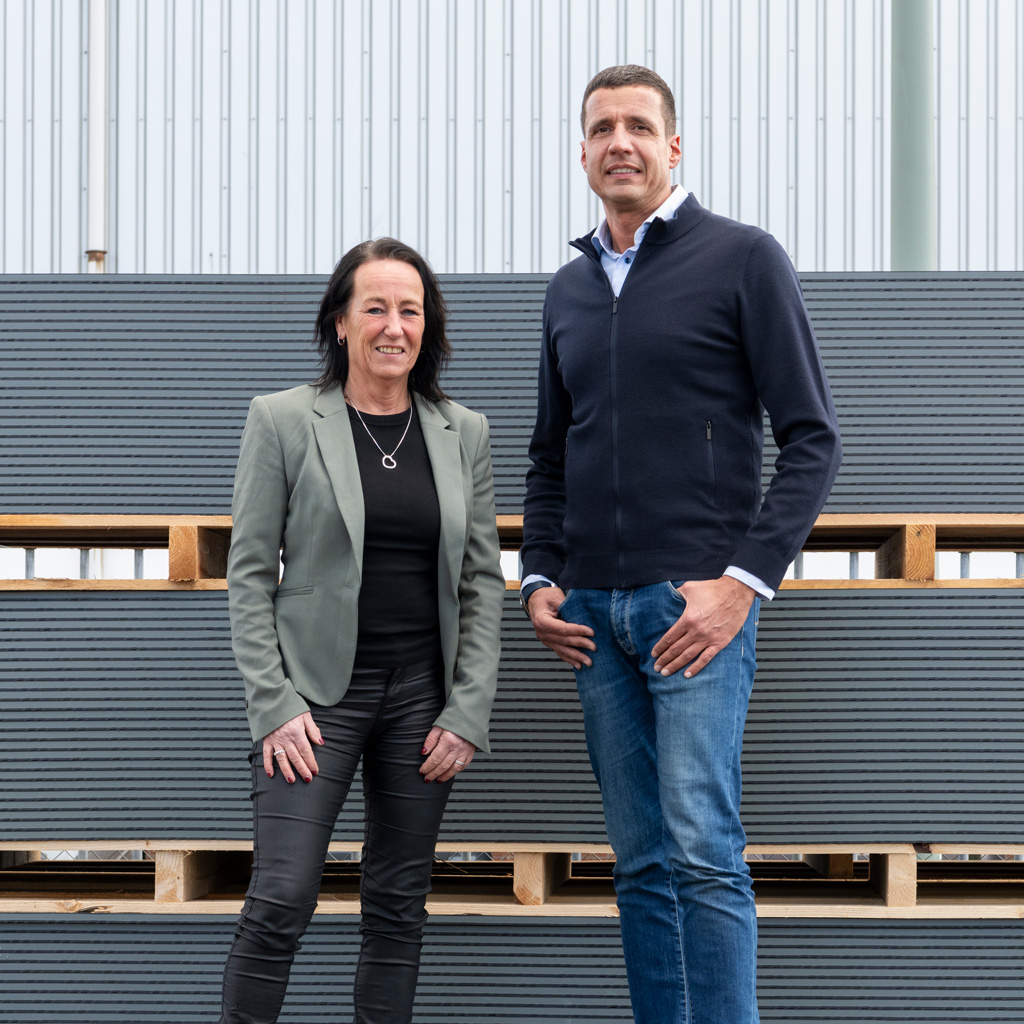Plastic road plates can last for years. However, you will need to use them correctly. Otherwise, they may break or develop cracks if subjected to heavy loads on sharp bends like kerbs or railway sleepers.
Steel road plates can bend under very heavy loads. Fortunately, we can always roll them straight again. As long as they are not too deeply rusted, you will be able to use them for many decades
The advantages of plastic road plates are as follows:
Plastic road plates are lightweight, which makes them easier to move, transport and store.
The single- or double-sided anti-slip tread makes vehicles less likely to skid.
The plastic road plates of ATS-rijplaten are made from recycled plastic and are therefore sustainable. That means fewer kilos of raw material are used for production.
As an option, you can have 1, 2, 3 or 4 handles milled in, making the plastic road plates easy to lift. For ergonomic lifting, you can use our handy tool, the Lifting hook.
The price of plastic road plates is much lower than that of steel road plates. The price of steel road plates also fluctuates considerably along with the steel price.
Your company logo and name can be milled into the A-quality and Premium HMPE plastic road plates. That gives them a professional look while reducing the risk of theft.
Plastic road plates do not rust.
The advantages of steel road plates are as follows:
Steel road plates are much more stable than plastic ones because they are heavier. That does away with the need for couplers.
Steel road plates are available in any size.
Steel road plates can withstand heavy loads of up to 120 tonnes.
We can deliver steel road plates quickly because ATS road plates are manufactured in our own steel cutting plant.
To choose between plastic or steel road plates, you will need to answer a number of questions:
What is the maximum load?
What type of vehicle are the road plates used for?
In what kind of environment are the road plates used? Steel road plates are noisier than plastic ones.
How frequently are the road plates used? What is the project duration?
Will the road plates stay in the same place throughout the project, or will they have to be frequently moved?
On what surface are the road plates used? Contact us for advice – entirely free of obligation – for your company and project. We will be pleased to help you make the safest and most efficient choice!
We have three plastic road plate types: A-quality, Premium HMPE and Budget. All three are available in various sizes, thicknesses and anti-slip treads. Here are the main properties by type:
A-quality: There are different sizes available, and the plates always retain shape. The road plates can be supplied with milled-in company logos and names.
HMPE: These road plates are also available in different sizes. What sets them apart is that they can withstand very high weight loads and an uneven, jagged surface. This plate is ideal for laying on demolition rubble.
Budget: These road plates are available in different sizes with a load-bearing capacity of up to 45 tonnes. It is not possible to mill in a company logo or name. However, they do feature a double-sided anti-slip tread (coarse and fine).
The road plates are of course available in various sizes, but you can also choose between two types of steel: S235 and S355. These types of construction steel are both of high quality, but one is more suitable than the other depending on your project and the substrate.
S235 bends a little more, making it ideal for bumpy or hilly surfaces. S355 is the strongest of its kind and can easily handle loads of up to 120 tonnes on jagged, uneven surfaces.
Are you wondering which type of construction steel is best for your project? Contact us!
The plates are usually delivered to the Netherlands, Belgium, and Germany within three working days.
Yes, you can collect the road plates from us. When ordering, please mention that you want to collect them from us. You can collect them from Monday to Friday between 08.30 am and 4.00 pm.

Do you have any questions?
Please feel free to contact us


